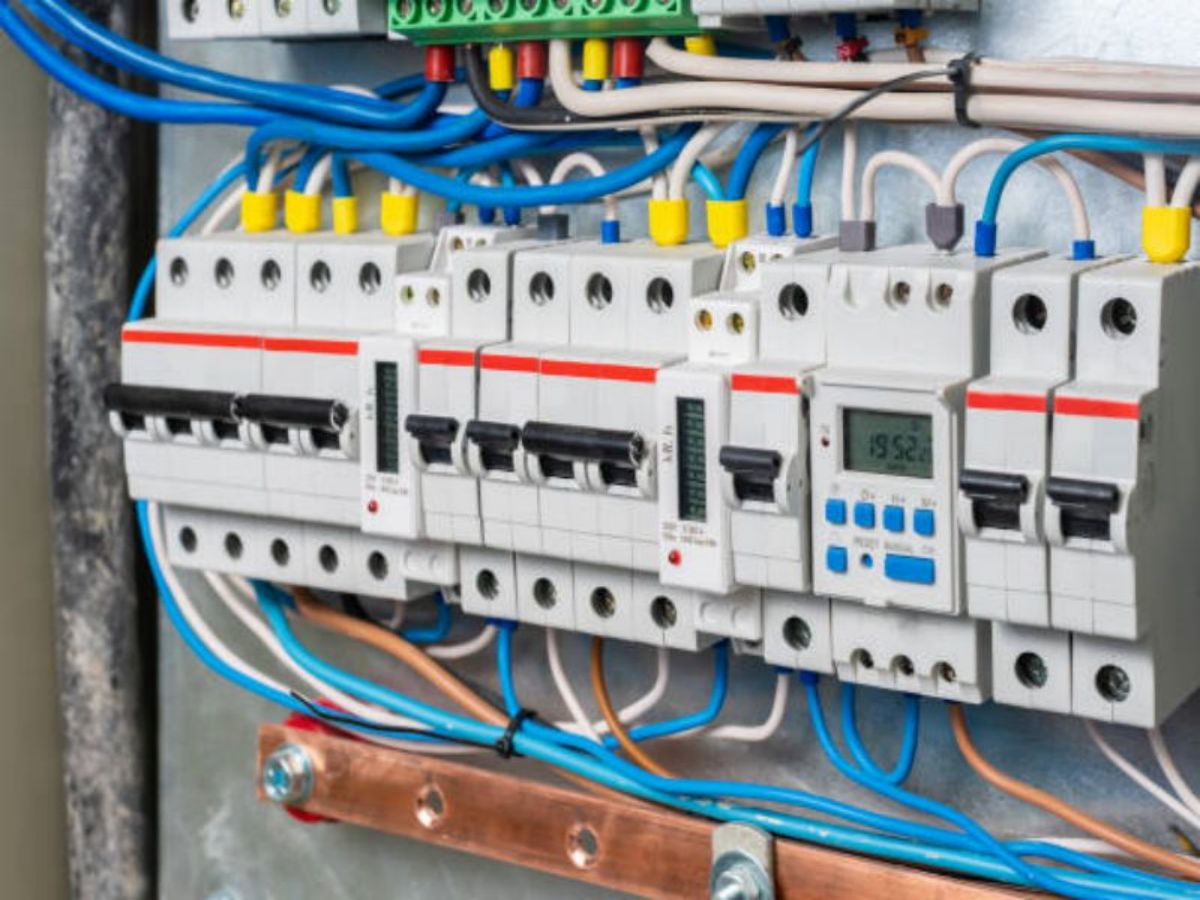Table of Contents

Introduction
When it comes to electrical safety, one of the most important components in any building is the circuit breaker. This device plays a crucial role in protecting your electrical system from overloads and short circuits, preventing potential fires and electrical hazards. In this comprehensive guide, we will explore the different aspects of circuit breakers, from their basic functionality to the various types available. So let's dive in and discover everything you need to know about circuit breakers.
1. Understanding the Basics of Circuit Breakers
Before delving into the intricacies of circuit breakers, it's essential to grasp their fundamental concept. A circuit breaker is an electrical switch designed to automatically interrupt the flow of current in an electrical circuit when it exceeds a predetermined limit. It acts as a safety net, protecting your electrical system from damage and ensuring the smooth functioning of your appliances and devices.
2. How Do Circuit Breakers Work?
Circuit breakers work on the principle of electromagnetism and heat. When an excessive current flows through a circuit breaker, the electromagnet inside it gets activated, pulling down a metal lever and opening the circuit. This interruption of current flow prevents any further damage to the circuit and avoids potential hazards. Additionally, circuit breakers also have a bimetallic strip that bends due to the heat generated by excessive current, further aiding in disconnecting the circuit.
3. Different Types of Circuit Breakers
Circuit breakers come in various types, each designed for specific applications and electrical systems. Let's explore some of the most common types:
3.1 Miniature Circuit Breakers (MCBs)
MCBs are the most commonly used type of circuit breakers in residential and commercial buildings. They provide protection against overloads and short circuits and are available in different current ratings. MCBs are easy to install, compact in size, and offer reliable circuit protection.
3.2 Residual Current Circuit Breakers (RCCBs)
RCCBs, also known as ground fault circuit interrupters (GFCIs), are designed to detect imbalances in the electrical current caused by leakage or faults. They provide protection against electric shocks and are commonly installed in areas where water is present, such as bathrooms and kitchens.
3.3 Molded Case Circuit Breakers (MCCBs)
MCCBs are heavy-duty circuit breakers capable of handling higher currents and protecting larger electrical systems. They are commonly used in industrial applications and can provide additional features like adjustable trip settings and remote operation.
4. Circuit Breaker Ratings and Specifications
Understanding circuit breaker ratings is crucial to ensure proper protection for your electrical system. Here are some essential specifications to consider:
4.1 Current Rating
The current rating of a circuit breaker determines the maximum current it can safely handle. It is crucial to choose a circuit breaker with an appropriate current rating based on the connected load to prevent overheating and potential hazards.
4.2 Breaking Capacity
The breaking capacity refers to the maximum fault current a circuit breaker can safely interrupt without suffering any damage. It is essential to select a circuit breaker with a breaking capacity suitable for your electrical system to ensure effective protection.
5. Importance of Regular Circuit Breaker Maintenance
Like any other electrical component, circuit breakers require regular maintenance to ensure their optimal performance and longevity. Here are a few reasons why regular maintenance is crucial:
5.1 Preventing Malfunction
Regular maintenance helps identify any potential issues with circuit breakers, such as loose connections or worn-out components, preventing them from malfunctioning when you need them the most.
5.2 Ensuring Safety and Compliance
By conducting regular maintenance, you can ensure that your circuit breakers comply with safety regulations and standards. This not only protects your electrical system but also safeguards the occupants of the building from potential electrical hazards.
6. Troubleshooting Circuit Breaker Issues
Despite their robust design, circuit breakers can sometimes encounter issues. Here are a few common problems you may encounter and some troubleshooting tips:
6.1 Tripping of Circuit Breakers
If your circuit breaker frequently trips, it may indicate an overload or short circuit. To troubleshoot, try disconnecting some devices from the circuit or redistribute the load to prevent overloading.
6.2 Circuit Breaker Won't Reset
If a circuit breaker refuses to reset after tripping, it could be due to a faulty circuit or a more significant issue. In such cases, it is advisable to consult a qualified electrician to identify and rectify the problem.
7. Circuit Breakers and Smart Homes
The advent of smart home technology has revolutionized the way we interact with our electrical systems. Circuit breakers are no exception to this trend. Smart circuit breakers offer advanced features such as remote control, real-time monitoring, and automation, allowing homeowners to enhance their energy efficiency and overall electrical system management.
8. The Future of Circuit Breakers
As technology continues to evolve, so does the field of circuit breakers. Researchers and engineers are constantly working on developing innovative circuit protection solutions, such as solid-state circuit breakers and self-healing materials. These advancements aim to improve efficiency, reliability, and safety in electrical systems.
9. Conclusion
Circuit breakers play an indispensable role in safeguarding our electrical systems and ensuring the safety of our homes and buildings. Understanding their functionality, types, and maintenance requirements is essential for every homeowner and professional in the electrical industry. By following the guidelines outlined in this article, you can make informed decisions regarding circuit breakers and ensure the smooth operation of your electrical system for years to come.
